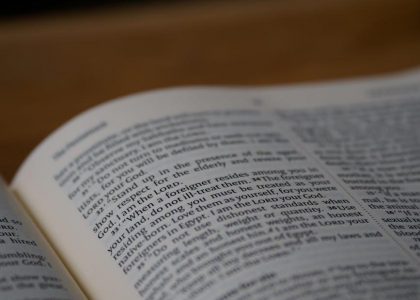Understanding a Motion for Continuance in Texas
A motion for continuance in Texas is a formal request to postpone a court hearing or trial. It must be submitted in writing, stating specific facts and supported by an affidavit. The court evaluates each case individually to determine if a continuance is justified, ensuring justice is served.
Definition and Purpose of a Motion for Continuance
A motion for continuance is a formal, written request to postpone a court hearing or trial to a later date. Its primary purpose is to allow additional time for preparation, gathering evidence, or addressing unforeseen circumstances that may hinder a fair proceeding. In Texas, this legal tool is essential for ensuring that all parties have adequate opportunity to present their case effectively. The motion must be submitted in advance and state specific facts demonstrating a valid reason for the postponement, as merely agreeing to a delay is insufficient. The request is typically supported by an affidavit or other documentation to verify the facts presented. The court evaluates the motion based on the merits of the case and the potential impact on justice. A continuance is not granted for the purpose of delay but rather to serve the interest of justice and ensure a fair trial. This legal mechanism is available in both civil and criminal cases, providing flexibility in the judicial process while maintaining the integrity of the legal system.
When to Request a Continuance in Texas
A motion for continuance in Texas is typically requested when unforeseen circumstances prevent a party from being fully prepared for a hearing or trial. Key scenarios include needing additional time for discovery, awaiting essential evidence or witnesses, or addressing scheduling conflicts with attorneys or experts. Personal emergencies, such as illness or family crises, may also justify a request. The motion should be filed as soon as the need for a postponement becomes apparent, ensuring the court has sufficient time to review and respond. Importantly, the request must demonstrate that the delay is not intended to hinder the proceedings but rather to ensure a fair and just outcome. The court evaluates each case individually, considering the reasons for the request and the potential impact on all parties involved. A continuance may be granted if it aligns with the interest of justice and does not unfairly disadvantage others. Proper documentation, such as affidavits or written agreements, strengthens the request and increases the likelihood of approval.
Grounds for Requesting a Continuance

A motion for continuance in Texas must be based on specific, valid grounds to ensure the request is taken seriously by the court. Common grounds include insufficient time for discovery, the unavailability of key witnesses or evidence, or unavoidable scheduling conflicts with counsel or experts. Personal emergencies, such as illness or family crises, may also be considered valid reasons. Additionally, if a party needs more time to prepare their case due to complexity or unforeseen developments, this can justify a continuance. The request must demonstrate that the delay is not intended to disrupt the legal process but rather to ensure a fair and just resolution. The motion must be supported by documentation, such as affidavits or written agreements, to validate the grounds for the request. The court evaluates whether the grounds are substantial and whether granting the continuance aligns with the interest of justice. Frivolous or delaying tactics are generally not tolerated, and the court may deny the motion if it determines the request lacks merit.

Differences Between Civil and Criminal Continuance Requests
In Texas, the process and grounds for requesting a continuance differ slightly between civil and criminal cases. In civil cases, a motion for continuance is often sought due to discovery issues, scheduling conflicts, or the need for additional evidence. The court typically evaluates whether the delay will promote fairness and efficiency in resolving the case. In contrast, criminal cases involve stricter standards, as the defendant’s right to a speedy trial must be balanced against the need for a continuance. Criminal defense attorneys may request a continuance to gather evidence, prepare witnesses, or address pretrial issues, while prosecutors may seek delays due to witness unavailability or investigative needs. The court must ensure that any delay does not infringe on the defendant’s constitutional rights. While civil cases may allow for more flexibility, criminal cases require careful consideration of the potential impact on trial fairness and the defendant’s liberty. Both types of cases, however, require the moving party to demonstrate “good cause” and provide supporting documentation to justify the request.

Preparing and Filing a Motion for Continuance in Texas
To prepare a motion for continuance in Texas, ensure it is in writing, states specific facts, and is supported by an affidavit. Include a certificate of service and file it with the court clerk. The motion must not be for delay and should be submitted timely.

Step-by-Step Process to File a Motion for Continuance
Filing a motion for continuance in Texas requires careful preparation and adherence to legal procedures. First, draft the motion in writing, ensuring it states specific facts and reasons for the request. Attach supporting documentation, such as affidavits or evidence, to validate the grounds for the continuance. Next, include a certificate of service, confirming that all parties involved have been notified. File the motion with the court clerk’s office, paying any required fees. Serve copies of the motion to opposing counsel or parties, as mandated by Texas law. Finally, attend any scheduled hearing to present your case. The court will review the motion and render a decision, either granting or denying the request. It is essential to act promptly and follow all procedural rules to ensure the motion is considered.
Required Documentation and Attachments
Filing a motion for continuance in Texas requires specific documentation to ensure the request is properly supported. First, the motion itself must be in writing and state specific facts showing sufficient cause for the continuance. It must also be verified or supported by an affidavit made by a person with personal knowledge of the facts. This affidavit should detail the reasons for the request and any relevant circumstances. Additionally, a certificate of service must be included, confirming that a copy of the motion has been served to all opposing parties or their counsel. If the motion is based on the unavailability of evidence or witnesses, supporting documentation, such as witness affidavits or medical records, should be attached. The motion must also include a statement that it is not made solely for delay but to ensure justice is served. Properly executing and notarizing the affidavit is crucial to avoid procedural issues. Ensuring all required documents are complete and accurately prepared is essential for the court to consider the request seriously.
Court Discretion in Granting or Denying a Continuance
The decision to grant or deny a motion for continuance in Texas rests solely with the court’s discretion. Judges evaluate each case individually, considering whether “good cause” exists for the delay. The court assesses factors such as the reason for the request, the potential prejudice to either party, and the impact on judicial efficiency. If the motion is based on insufficient grounds, such as mere convenience or lack of preparation, it is likely to be denied. The court also examines whether the request is made in good faith and not solely to delay proceedings. Texas law requires that the motion must state specific facts and be supported by an affidavit to demonstrate sufficient cause. Ultimately, the court balances the interests of justice and the need for timely resolution. Even if all parties agree to a continuance, the court is not obligated to grant it, as the final decision remains within its discretion. This ensures that the legal process remains fair and efficient while accommodating legitimate needs for delays when warranted.

Consequences of a Denied Motion for Continuance
If a motion for continuance is denied, the case will proceed as originally scheduled. The party requesting the continuance must be prepared to move forward with the hearing or trial on the set date. Failure to appear or be prepared may result in legal consequences, such as a default judgment in civil cases or additional charges in criminal cases. In criminal proceedings, a denied motion could lead to the case proceeding to trial without key evidence or witnesses, potentially weakening the defense. Civil litigants may face penalties for not meeting deadlines or failing to present their case adequately. A denied motion may also limit the ability to request future continuances, as courts often view repeated requests unfavorably. The court may impose sanctions or penalties for filing a motion without sufficient cause. In extreme cases, such as when a party is deemed to have abused the continuance process, the court may take additional measures to ensure compliance. Understanding these consequences underscores the importance of submitting well-supported motions and being prepared to proceed if the request is denied. The court’s decision is final, and parties must adapt accordingly to avoid further complications.
Legal Standards for Continuance Requests

In Texas, a motion for continuance must meet specific legal standards to be considered by the court. The request must be made in writing and include specific facts demonstrating sufficient cause for the delay. Courts require that the motion not be filed solely for the purpose of delay but rather to ensure justice is served. The facts presented must be verified, often through an affidavit from a person with personal knowledge of the circumstances. Failure to include verified evidence may result in the motion being denied. The court evaluates each case individually, balancing the need for a continuance against the interests of judicial efficiency and fairness. Texas law also mandates that the motion must comply with procedural rules, such as proper service to opposing parties and timely filing. If the motion does not meet these standards, the court may deny the request without further consideration. The legal standards apply equally to both civil and criminal cases, ensuring consistency in how continuance requests are handled. Ultimately, the court’s discretion plays a significant role in determining whether the motion meets the required legal thresholds. This ensures that the judicial process remains fair and orderly while accommodating legitimate needs for delays.
Using Texas-Specific Motion for Continuance Templates
Using Texas-specific motion for continuance templates ensures compliance with state procedural rules. These templates are designed to align with the legal requirements of Texas courts, making the process easier for filers. Official templates are often available on county court websites or legal aid resources, such as the Tarrant County template referenced earlier. They typically include sections for case information, grounds for the continuance, and verification statements. By using these templates, individuals can ensure their motion is properly formatted and includes all necessary details, increasing the likelihood of a favorable court decision. Proper formatting and adherence to Texas-specific requirements are crucial, as courts may deny motions that fail to meet procedural standards. These templates also guide users in providing specific facts and evidence, which are essential for a successful continuance request. Ultimately, Texas-specific templates streamline the process, helping filers present their case effectively while adhering to state laws and court expectations. This approach minimizes errors and ensures the motion is taken seriously by the court. Always verify the template’s source to ensure it complies with current Texas legal standards. Proper use of these resources is vital for a smooth and efficient legal process.
Key Considerations Before Filing a Motion
Before filing a motion for continuance in Texas, several important factors must be considered. First, ensure there is a valid reason for the request, such as insufficient preparation time, evidence availability, or scheduling conflicts. Courts require “good cause” to grant a continuance, and frivolous requests may be denied. Additionally, the motion must be submitted in writing and include specific facts supported by an affidavit, as required by Texas law. Timing is critical; filing the motion too late may result in denial. It’s also important to review the court’s rules and procedures to ensure compliance. If opposing counsel agrees to the continuance, obtaining their consent in writing can strengthen the request. However, the court retains discretion to grant or deny the motion, regardless of party agreement. Lastly, the filer must understand that a denied motion may require proceeding with the original schedule, emphasizing the need for thorough preparation. Proper documentation and adherence to legal standards are essential to avoid procedural issues and increase the likelihood of a favorable outcome. Always consult legal resources or an attorney to ensure the motion is filed correctly and effectively.





